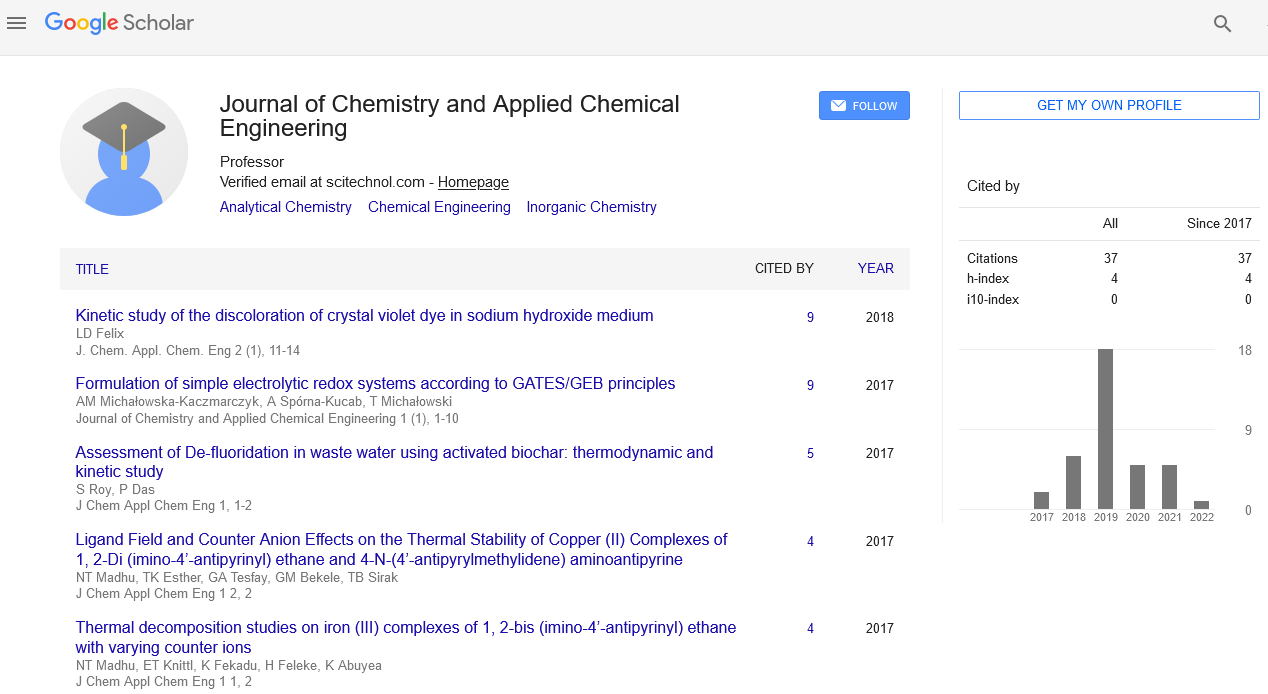Mechanistic investigation inspired green synthesis strategies: From theory to experiments
Jingping Zhang
Northeast Normal University, China
: J Chem Appl Chem Eng
Abstract
Computational chemistry is especially important for understanding the structures and properties of compounds and for elucidating mechanisms of chemical reactions, in turn, helps in the design of new reactions and catalysts. To achieve green syntheses, we have explored the effects of assistant (catalyst), solvent, and counterion on the reactions to optimize the experimental conditions towards green synthesis.1-7 A series of novel organic synthesis reactions with trace water-, water solvent-, selfcatalyzed and water replacing organic toxic solvents have been achieved by DFT calculation with following findings. 1) The chairlike [3,3]-intramolecular shift was found to be the rate-limiting step for the water-catalyst mechanism with lower energy barrier in both gas-phase and QM/MM simulated bulk water, compared with those under neat condition for aromatic Claisen Rearrangement.1 2) Economic reaction approaches were designed for the reported domino cyclization between gemdialkylthio vinylallenes and benzylamine in DMSO solvent, namely, this reaction can be improved under organic solvent-free conditions either catalyzed by trace water or self-catalyzed by BnNH2.3 3) [DBUH]+- H2O was found to be the effective catalyst form in the proton migration transition state rather than traditional suggestion [DBU-H]+-OH– for the synthesis of 2,3-dihydro-pyrido[2,3-d]pyrimidin-4(1H)-Ones.4 4) We have found a green “On water” synthetic strategy for biphenol derivatives previously prepared in MeCN by β-Naphthol and Formaldehyde.5 5) The mechanism of N-Bromosuccinimide (NBS) promoted synthesis of imidazo[1,2-a]pyridine can be altered and accelerated by solvent water and substrate. Water acts as solvent, reactant, anchoring, stabilizer, and catalyst in our explored reactions. Therefore we open a new efficient and green strategy for the synthesis of previously reported reactions.
Biography
Jingping Zhang has completed her PhD at the age of 31 years from Northeast Normal University and postdoctoral studies from Kyushu University. She is currently the director of division of International Cooperation and Exchange. She is also the chief editor for Journal of Molecular Science. The research interests of her are investigation of mechanism for novel organic reactions and design functional materials such as lithium ion battery (cathode & anode) materials. She has published more than 320 papers in J. Am. Chem. Soc, Angew. Chem., Int. Ed, Nano energy, ACS Catal, Green Chem, Chem. Commun, J. Mater. Chem. A, Adv. Synth. Catal, J. Org. Chem, J. Comput. Chem, etc
E-mail: jpzhang@nenu.edu.cn
 Spanish
Spanish  Chinese
Chinese  Russian
Russian  German
German  French
French  Japanese
Japanese  Portuguese
Portuguese  Hindi
Hindi 